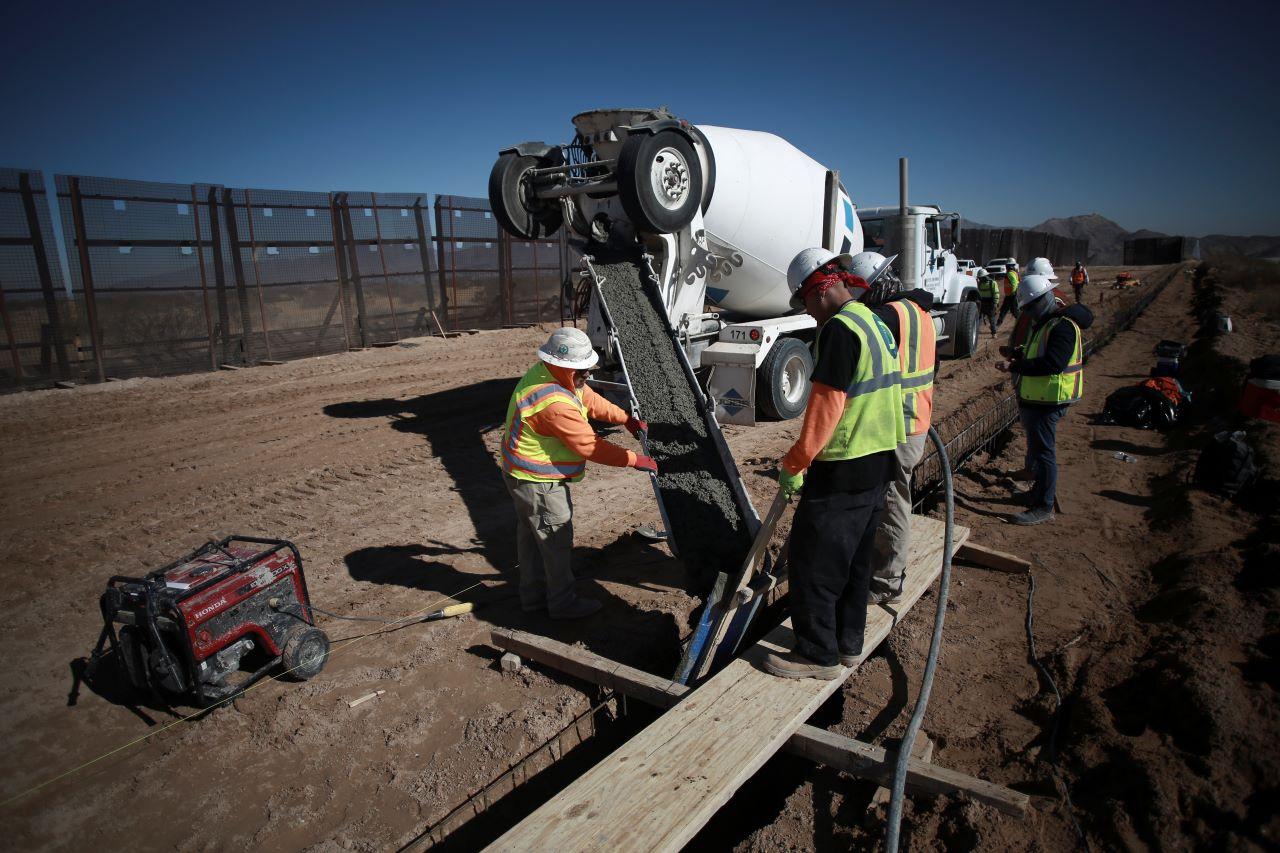Trump’s US-Mexico border wall, a promise kept?
The controversial wall between Mexico and the US is said to have brought down arrests for illegal activities and forced traffickers to use more easily spotted or riskier routes.
Just In
As President Donald Trump prepares to leave office, he is highlighting the same issue that helped get him elected in the first place: the US-Mexico border wall.
Trump visited Texas on Tuesday to tout the completion of more than 700km of new wall and barrier improvements under his administration.
The White House has boasted the achievement marks a “promise made, promise kept” – but the reality is more nuanced.
Campaign promise
As he launched his presidential campaign in 2015, Trump promised: “I will build a great, great wall on our southern border, and I will make Mexico pay for that wall. Mark my words.”
The pledge became a hallmark of his campaign, with supporters often chanting “Build the wall” at rallies.
According to Trump, the wall would help stop illegal immigrants, drug traffickers and other criminals getting into the US along the US-Mexico border, which stretches almost 3,145km.
Partially kept
Ultimately, most new construction came in areas where some sort of border wall or fence already existed.
Parts of the border have as many as three barriers running parallel to the frontier; most of the work under the Trump administration has been in these areas.
Fewer than 80km of new wall or fencing have been constructed where none existed previously.
Trump’s grander dreams for a “big, beautiful wall” have been thwarted by funding disputes and a knot of legal challenges from private land owners along the border.
President-elect Joe Biden has said he won’t build “another foot” of the wall – although it’s not clear what he will do about projects that are already underway.
Taxpayer dollars
Trump’s promise to make Mexico pay for the wall came to nothing, and the US Congress in 2016 authorised US$5 billion in funding.
But the Democrats, who took control of the House of Representatives in 2018, were unwilling to release additional money.
The standoff triggered a record 35 days of partial shutdown of the federal government in late 2018 to early 2019.
Trump ultimately bypassed Congress by controversially dipping directly into the Pentagon’s coffers.
The Defense Department has allocated nearly US$10 billion for the project.
Does it work?
Proponents and critics of the wall debate fiercely about the barrier’s effectiveness.
“The results speak for themselves: illegal drug, border crossings, and human smuggling activities have decreased in areas where barriers are deployed,” the Department of Homeland Security said in October.
After a peak in 2019, arrests along the border dropped last year, but it’s difficult to know how much of this was due to the pandemic.
As for drug smuggling, experts say this continues mainly at official entry points such as ports, airport and border crossings.
Still, some traffickers have been forced to take riskier and easier-to-spot routes, such as tunnels or boats off the southern California coast.
Subscribe to our newsletter
To be updated with all the latest news and analyses daily.
